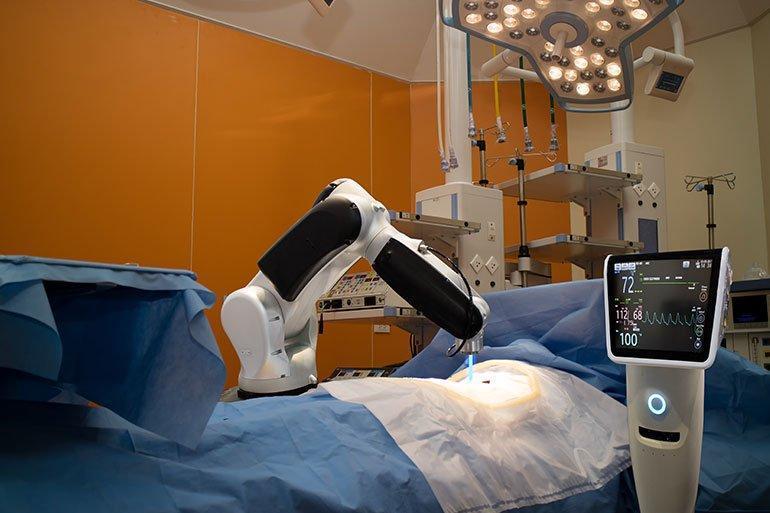Artificial Intelligence (AI) systems are getting smarter every passing moment. Some complex tasks like driving and understanding natural language are already being allotted to AI, but can we move a step further? In this article, we look at prospects of using AI for medical diagnosis.
Artificial Intelligence (AI) has been around for quite some time now. Over time, systems equipped with AI are getting wiser than ever. AI started out as computer programs that could play complicated games. Deep Blue was the first chess-playing computer software to beat the then reigning world champion – Garry Kasparov. Soon, we had AI that could play even more complex games.. However, apart from bashing us at games, AI has been helping us with precise search results, data structuring, cybersecurity enhancement, and even digitizing age-old books. And now experts believe that AI for medical diagnosis can aid our doctors or even replace them in the near future.
Do We Need AI in Medical Diagnosis?
Time is the most valuable resource in healthcare. Medical response delayed by a few minutes could mean death for a patient suffering with a heart stroke. Even for terminally-ill patients, an early diagnosis means a few more days to spend with friends and family. However, not all doctors can attend their patients for as long as they would like. WebMD owned Medscape reported in its Physician Compensation Report 2016 that doctors hardly get up to 13 – 16 minutes to attend each patient. The patient’s entire course of treatment has to be charted or corrected by the diagnosis carried out in these minutes. A worrying trend is portrayed in a recent research. The research mentions how American physicians are spending up to two-thirds of their work-hours in entering data and stay engrossed in paperwork. If we could automate the diagnosis, doctors would be able to spend a lot more time with their patients or could attend to more patients leading to better healthcare delivery. AI can make this happen.
Are AI Doctors Here?
AI learns to think as humans do with a concept called deep learning. Deep learning utilizes broad sets of sample data to create decision trees by itself. Such skills are of great importance because this is how humans are thought to gain expertise in skills. With deep learning, AI can now think like humans, if not better, and can thereby be deemed fit to carry out medical tasks. Google has developed an AI eye doctor that has been trained to report leaky and fragile blood vessels at the back of an eye, which are symptoms of poorly controlled diabetes. AI is now helping in diagnosing real patients in India. China-based Infervison has developed an AI system with GE Healthcare, Cisco, and Nvidia that is trained to analyze computerized tomography (CT) scans and X-rays to detect lesions and nodules that could be early symptoms of lung cancer.
As AI systems start diagnosing patients, they also keep looking for patterns among patients with same illnesses. Over time, these patterns can lay the foundation for predicting diseases before they are manifested. With each developing AI for medical diagnosis, healthcare delivery is improving significantly for potentially everyone.



Leave your comments
Post comment as a guest